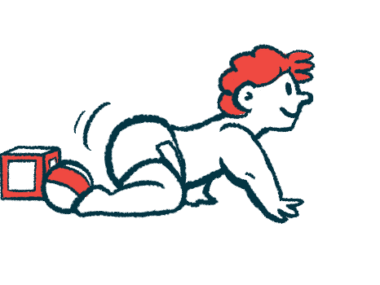Independent Living for People With Late-onset Pompe Disease
Written by |

While late-onset Pompe disease can affect your ability to perform daily tasks, creative problem-solving skills and support can help you live independently for as long as possible. Here is some information that may help you.
About late-onset Pompe disease
Pompe disease is a rare genetic disease characterized by the buildup of a sugar molecule called glycogen inside cells. This buildup impairs the working of different organs and tissues, especially the heart, respiratory, and skeletal muscles.
There are three types of Pompe disease, including late-onset. About two-thirds of patients have this form, which may first appear in late childhood, or even in teenage or adult years.
Late-onset Pompe disease is often milder and progresses more slowly than the infantile forms. In general, the later the disease appears, the slower the symptoms progress. These symptoms include progressive muscle weakness, mobility problems, breathing issues, tiredness, weight loss, difficulty swallowing and hearing, morning headaches, and scoliosis.
Living independently
Whether you dream of living in your first apartment or need extra help to remain in your own home, solutions for establishing a self-sufficient environment are different for every person. Remember that Pompe disease is progressive, so your needs will change over time.
Consider your needs
If you’re considering moving into your own new space, think about how you might adapt it to better suit your needs. Perhaps you will need adjustments to your kitchen or bathroom, or you may realize you need a single-floor residence if using stairs has become too difficult.
When you are checking out potential places, consider taking a friend or family member along who may be able to advise you.
In any case, think about your short- and long-term goals, and how best you might achieve them as independently as possible.
Access resources
Many agencies and organizations help provide practical support that individuals with disabilities need to live independently. Services vary among communities, but they might include assistance with locating accessible housing and personal care attendants, training in independent living skills, peer counseling, or legal aid.
The Muscular Dystrophy Association (MDA) Resource Center can help you find independent living and services available to you. MDA Care Centers can help you with equipment and other needs.
Other resources include the Aging and Disability Resource Centers, the Area Agency on Aging, and Centers for Independent Living. A list of additional resources covering a range of needs can be found on the Administration for Community Living website.
Consider aids for independence and mobility
To some extent, Pompe disease will impair mobility and walking. As muscle weakness worsens, patients often become wheelchair users or require assisted ventilation.
Treatments and supportive therapies, such as physiotherapy and occupational therapy, can help with your independence. A neuromuscular physiotherapist can help restore movement and function, while an occupational therapist can visit and assess your home and offer adaptations.
Assistive technologies and adaptive equipment, such as computer devices or seat cushions, can also help you live more independently.
Learn new strategies
The symptoms and challenges of Pompe disease will inevitably require changes in your daily routine and lifestyle. But these changes don’t always mean you must relinquish your independence or the activities you enjoy. Rather, learning new strategies and approaches can help you to adapt.
Tips include:
- adjusting your routine to provide extra time to perform activities
- altering your employment situation if working becomes too difficult
- adjusting interests, hobbies, and social activities
- plugging into patient organizations such as the International Pompe Association for information, shared experiences, and support
Last updated: Sept. 29, 2020
***
Pompe Disease News is strictly a news and information website about the disease. It does not provide medical advice, diagnosis, or treatment. This content is not intended to be a substitute for professional medical advice, diagnosis, or treatment. Always seek the advice of your physician or other qualified health provider with any questions you may have regarding a medical condition. Never disregard professional medical advice or delay in seeking it because of something you have read on this website.


